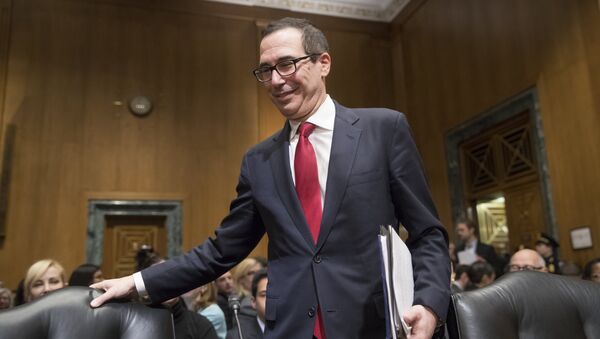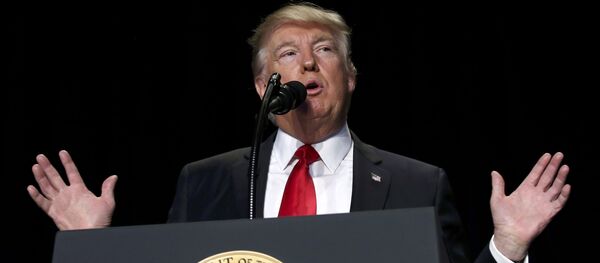The rhetoric of ‘fairness’ in international trade and the emphasis on domestic-driven growth are deemed as a more constructive way of moving the global economy forward rather than trade wars and ‘races to bottom’ in monetary and fiscal stimuli.
US Secretary of the Treasury Steven Mnuchin explicitly put the ‘America First’ agenda above the importance of the international trade and financial institutions, such as the World Trade Organisation, during his speech at the G-20 meeting on Saturday. His message reflected the Trump administration’s reluctance to follow the existing rules in international trade, and their commitment to seek a new consensus in this regard.
Other finance ministers observed Mnuchin was not thoroughly prepared for the meeting as he has not explained how the new economic policies in the US will affect the system of international trade and the global economy in general. This might as well be a reflection of the lack of interest in the White House regarding the spillovers and other effects of their policy measures to the rest of the world.
“This is my first G20,” Mnuchin said after the meeting. “What was in the past communique was not necessarily relevant from my standpoint."
The reactions of other finance ministers to Mnuchin’s speech and, in general, the recent developments in the US approach to trade, which includes protectionist tariffs yet to be implemented, were mixed. The overall sentiment was dominated by the uncertainty of the White House’s next steps – pretty much falling in line with Donald Trump’s signature tactic of keeping his intentions unclear so that his actions do not meet organised reaction upon implementation.
Mnuchin “didn’t have a mandate to negotiate new or creative wordings,” the German finance minister Wolfgang Schaeuble said.
The matter of competitive currency devaluations that drew significant attention in 2015-2016, was hardly discussed this time as Mnuchin abstained from criticising mainland China over their FX rate policies. He was hardly confrontational, but the feeling that US isolationism and protectionist policies will likely collide with other parties’ interest was prevalent.
“He (Mnuchin) performed very well,” Scott Morrison, Australian finance minister said after the meeting. “He’s getting around, he’s getting to know his colleagues. I think he sent some very positive messages in terms of engaging all the economies.”
The G-20 has been supporting free trade policies for the past decade, seeing the laissez-faire approach as beneficial for all the economies based off their respective competitive edge and helpful in overcoming the destructive consequences of the 2008-2009 crisis. However, as nations have become increasingly competitive for the weakening consumer markets in the past two years, the free trade era has been drawing to its close.
"We believe in free trade, we are in one of the largest markets in the world, we are one of the largest trading partners in the world, trade has been good for us, it has been good for other people," Mnuchin said. "Having said that, we want to re-examine certain agreements."
This is a reflection of Trump’s earlier statements of other nations taking advantage of the US due to the dollar’s strength and high production costs stateside compared to certain other parts of the world. Trump’s desire to renegotiate not only the existing agreements, but the very mechanisms of international trade is now shaping up, and will likely be unveiled and pronounced during the July meeting of G-20 leaders.
The G-20 communique also does not contain the ‘climate change’ clause, as the White House said last week they consider fighting the climate change “a waste of money”.
Still, the G-20 condemned currency manipulations, the clause the, however, hardly prevented competitive devaluations during the past two years.
"We reaffirm our previous exchange rate commitments, including that we will refrain from competitive devaluations and we will not target our exchange rates for competitive purposes," the G-20 statement read.
The new White House administration is looking at the G-20 through the prism of their electoral promises, namely, “how can international institutions and trade benefit the economic interest of the US?” The disagreements over US explicit unilateralism might undermine the existing framework of the global trade, but before that happens, the rest of world will have to wait and see what Trump actually has to offer in terms of trade policy.





